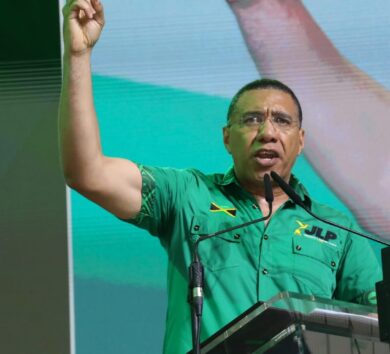

The financial situation at the state-controlled Grenada Electricity Company (GRENLEC) has deteriorated significantly within the past six months in spite of the installation of a new-look management team.
This has been confirmed by an influential member of the management team during an interview with THE NEW TODAY responding to questions that the island’s sole power electricity generating utility is looking to secure a multi-million dollar loan. The loan is being sought to honour an agreement signed on the eve of the June 23 general election covering salary increases for workers and improved fringe benefits.
GRENLEC is said to be seeking permission from the new Board of Directors to borrow EC$15 million dollars from a local financial institution to meet demands from the Technical & Allied Workers Union (TAWU) for salary increases and fringe benefits for its estimated 160 employees. The source attributed the 25 per cent discount of electricity bills to consumers by the former Keith Mitchell-led government in the aftermath of the COVID-19 pandemic as “a major factor” for the financial woes of GRENLEC.
This along with the constant increase in fuel prices and the salary increase settlement reached with TAWU. The source said the “significant retroactive” payment that was agreed upon between management and the union “would have added significant expenses to the operations” of GRENLEC.
Different trajectory laid out
According to the official, these three issues have had the effect of placing GRENLEC “in a completely different trajectory from what it was normally accused to” over the years as a monopoly in operation. If you had one at a time at different times you might have been able to overcome it much easier but when you have what I call the perfect story – when you have three different things hit you at the same time (there will be negative implications).”.
The insider disclosed that the signal coming out from the newly installed Board of Directors is that the members have no plans at this stage to engage TAWU in a renegotiation of the agreement for salary increases for employees and improved fringe benefits. When asked how GRENLEC proposes to pay the money and honour the agreement with TAWU, the source responded, “we are working on different strategies for that and we hope we have the cooperation of the union in that regard but given time I think we can overcome it.”
The official was also asked to comment on the thinking of the new management at GRENLEC on moving in a greater way towards solar power. He said: “It’s kind of early. I would expect that that will be part of the landscape that one will be looking at because that’s the way the world is going – trying to use more renewables for various reasons, not only the climate change impact.”
Attempting to turn around GENLEC
However, he said the board is more concerned at the moment with trying “to turn around the financial position” of GRENLEC which deteriorated under the previous rulers. GRENLEC employees are currently among the highest paid in the country with some workers taking home up to $10,000 – $12,000 per month in salaries.
The former Keith Mitchell-led administration took back control of GRENLEC some 20 months ago after it lost an international arbitration tribunal hearing that forced it to find over EC$200 million to repurchase the controlling shares from ‘WRB Enterprises.’

Ex-prime minister Dr Keith Mitchell had opposed the decision taken by the 1990-95 Congress Government of late PM Sir Nicholas Brathwaite to privatise the loss-making utility company, which was notable for frequent load-shedding due to ageing equipment.
The US company triggered the buy-back clause in the agreement shortly after Prime Minister Mitchell won the 2018 general election and both sides were forced to go into arbitration.







Comments